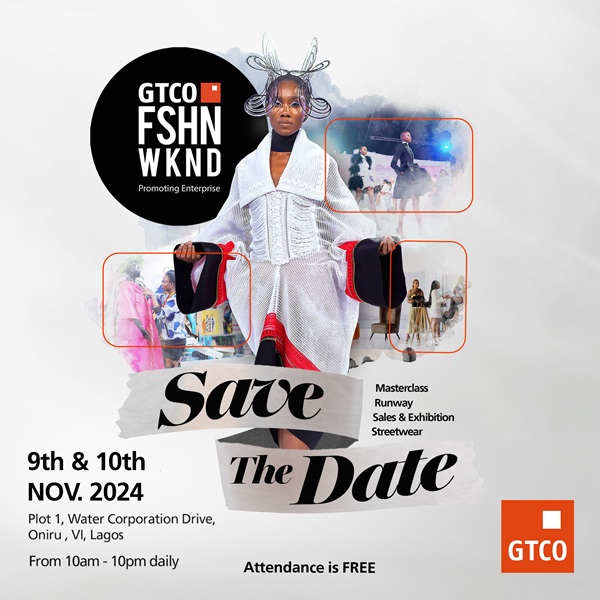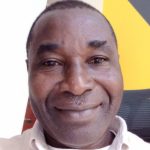October 13, (THEWILL) – The death of a statesman anywhere in the world would certainly make any editor’s day. Yes, a former head of state, president or prime minister passing on is sure to command the front page, catch millions of readers’ attention and guarantee millions of copies sold.
And in this digital age, the news would have travelled far and fast and had more than enough traction in dozens of platforms – WhatsApp groups, Instagram, X (formerly known as Twitter), and just about everywhere you had access to the Internet. It was exactly so when news filtered through last week that General Yakubu Gowon, head of state for nine years (1966 to 1975) had died. There was no known cause of death or even where he was at the time of his demise.
Quicker than a wink, the awful news was everywhere with most of the General’s compatriots mulling tearful obsequies for the soldier-statesman. Following the lie about Gowon’s death, Minister of Information during Gowon’s regime, EK Clark, as old as Gowon himself or possibly older, confessed he would have had a heart attack were it ever true. It was not and thankfully so.
Still, Gowon’s obituary would have followed a predictable pattern: his becoming head of state at a very young age; his prosecuting a war without borrowing money from anywhere; the gargantuan building projects his government started and completed – clover leaf-patterned roads, bridges and flyovers, rails, stadium, TBS Complex; his mediating on national issues in his later years with avuncular patience and sagely counselling for the country to remain as the founding fathers envisaged. Much would also have been made of his person as incorruptible even while some senior civil servants (read Permanent Secretaries) in his government were notorious for 10 percent kickbacks and became obscenely rich in the process.
But just as they were about to settle down to compose condolences for the hero of the Civil War who got Nigeria together thus living up to his name (Go on With One Nigeria), reassuring news filtered in again that the urbane General was alive. He was not dead after all.
In a telephone conversation with a national newspaper thereafter, Gowon stated he was hale and hearty, insisting that “I am not in a hurry.” He is 89.
Backing up Gowon’s claim was one of his intimate friends, Olorogun Kenneth Gbagi, candidate of the Social Democratic Party (SDP) in Delta state during the March 2023 governorship election. The rumour, Gbagi said, was the “handiwork of mischief makers.”
General Gowon, Gbagi let it be known through his Spokesperson, Orusi Kenneth, “is still much around with us, hale and hearty. He is not in a hurry to go anywhere,” declaring also that “I, Gbagi, just spoke with him. I hereby refute the rumour of the death of my friend, General Gowon. He has communicated to Nigerians that he is still much around, hale and hearty. Gowon is alive.”
So, how did mainstream and social media get it wrong? Why did they have to kill him even while alive?
It turned out it was a clear case of mistaken identity. Sure, someone named Gowon died at about the same time. But it was not the former head of state who was, at that time, safe and sound as a bell in faraway London.
Gradually, details of the Gowon who died began to filter through finally dispelling initial rumours of the decease of the most famous military officer from Langtang Jos in Plateau State. He was Professor Samuel Gowon Edoumiekumo erstwhile vice chancellor of Niger Delta University Yenagoa in Bayelsa State.
Once chairman Committee of Vice Chancellors of Nigerian Universities, parents of the late senior academic staff of NDU apparently gave him his middle name Gowon in honour of the soldier/head of state who brought the fratricidal Nigeria/Biafra conflict to an end in 1970, the year Samuel was born. More details showed that Edoumiekumo started his primary education in his natal Bayelsa State at Akeindenowei Primary School Toru Angiama where he obtained his First School Leaving Certificate. Next was his WAEC from Ajeromi Ifelodun High School Ajegunle in Lagos State.
Edoumiekumo studied economics for a first and second degree with a Bachelor of Science and Master of Science, and two doctoral degrees from the University of Port Harcourt, Rivers State and the University of Nigeria Nsukka, Enugu State.
Described as an “astute administrator,” the late don was appointed on May 2, 2018, by then governor of Bayelsa State, Seriake Dickson, who also is his relation.
“It is with heavy hearts that the management of the Niger Delta University wishes to inform the university community and general public of the sad passing of our immediate past Vice Chancellor, Prof. Samuel Gowon Edoumiekumo, which happened on Saturday, October 7, 2023, at the age of 53 years,” NDU’s Registrar, Benjamin Joffa, announced.
“The university also condoles with the family and relatives of the deceased on the sudden passing of an exemplary husband, father, and brother. Late Prof. S. G. Edoumiekumo was an astute academic and university administrator whose experience and dynamism will be greatly missed.”
The professor was done in by cancer.
With that, rumours of the former head of state’s demise were finally laid to rest. Even so, prematurely killing past Nigerian rulers is hardly new. In November of 1989, some Nigerian newspapers killed and buried on their front pages one of the founding fathers of the country, Nnamdi Azikiwe. Nearly all the media houses carried a retraction the following day claiming that the senior citizen was alive.
Also killed before his time was Umaru Musa Yar’Adua, president from 2007 to 2010. He was rumoured dead during the campaigns in 2006 leading to the presidential election of 2007. It took then-incumbent Olusegun Obasanjo of the Peoples Democratic Party to allay the public’s fears about Yar’Adua. In a famous public telephone conversation bordering on gallows humour, Obasanjo pointedly asked the PDP presidential candidate convalescing in a German hospital thusly: “Umaru, are you dead?”
“I have a severe dose of catarrh, which has made it difficult for me to breathe,” the presidential candidate killed before his time replied. “It is caused by the strenuous campaign across the country.”
Commenting on the awkward conversation then, senior journalist and commentator, Ray Ekpu, reasoned that “Nigerians thought whatever ailment made him abandon the campaign to become the President of Nigeria must be deadly serious, more serious than catarrh; in fact, that he was dead. But he wasn’t dead.”
Generals Ibrahim Babangida and Muhammadu Buhari have also been rumoured dead even while alive. The military president went to France for his perennial knee problem (radiculopathy) sometime back. He was still there when Nigerians murdered him by word of mouth.
Buhari’s own case was worse. Begun and canvased by Nnamdi Kanu, detained leader of IPOB, news of the Nigerian president’s death spread around faster than a wink. It was even alleged that to conceal his demise, a double from Sudan named Jubril was actually in charge of the presidency.
Of course, Nigerians now know who was seeing double.
The media – mainstream and social – also stands accused of promoting such fallacies. But the problem lies more with Citizen Journalism, especially now in the digital age where any individual with a laptop or Android or iPhone can peddle untruth just by punching the ok button.
“One person sits on his laptop computer and churns out nonsense and sends it to the world,” Ekpu has written. “The world gulps it down innocently. And the culprit for the dissemination of this falsehood is called media, even if the offence was committed by social media, which are not interested in professionalism or ethics that underpin journalism practice and do not have the infrastructure for the credible practice of the profession. But we are condemned to live with the social media warts and all because it is a movement that has its positives too.”
Michael Jimoh is a Nigerian journalist with many years experience in print media. He is currently a Special Correspondent with THEWILL.







